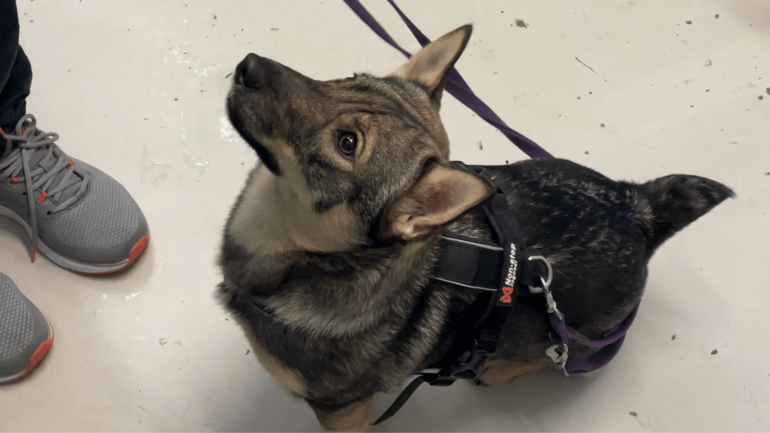A dog physiotherapist has said that more dogs are being treated for behavioural problems because they were not appropriately trained during the COVID-19 lockdown.
“Aversive” training methods used by some owners due to centres being closed during the pandemic are causing dogs to be fearful and have mental health issues such as separation anxiety.
Dog physiotherapist Denise Hayes Davies from Canine Rehab Cardiff told CJS News said she found it more difficult to recognise the dogs’ anxiety levels and their lack of understanding about how they should behave around others.
She said: “These dogs have every reason to have a level of anxiety because the time that they were brought up gave them no reason to have confidence.
She added: “The mental health of the dog needs to be addressed in a step-wise fashion.
“There needs to be education … to rewire the dog. But that takes a lot of patience”.
It comes as a study by the Royal Veterinary College found four in five (82%) lockdown puppy owners have reported using “aversive” training methods to address their dogs’ behavioural problems.
However, this rise in “punishments” such as owners shouting at their dogs or using training equipment that is unpleasant for dogs rather than using reward-based methods such as praises and treats, negatively impacts their mental health due to the fear and separation anxiety it can cause.
According to the Royal Veterinary College, these methods are considered “aversive”:
- Pushing them off if they jump up at a person or on furniture
- Shouting at them/telling them off
- Yanking their lead if they pull
- Using harsh training equipment such as rattle bottles/cans/discs, water pistols/spray bottles, and choke chains.
The study found that over 1,000 UK owners identified control, attention-seeking, aggressive, fear and avoidance behaviours in their dogs, such as pulling on their lead, clinginess, aggression towards other dogs and anxiety.
The study also found that 33% of owners found that training their dogs was more challenging than expected, which was more common in first-time owners.

A dog owner, Sam Holland, said: “They’re so used to having people around them all the time. And it gets very difficult when you start going back to work, and you’re leaving them for long spaces of time”.
She added: “I tried to understand him by his behaviour, but he will never leave my side … he gets a little bit anxious around other dogs. So I’ve had to do something, take some steps of neutering him because he was getting a bit aggressive”.
According to the Royal Veterinary College, it hopes to carry out a wider study that will investigate outcomes in the future, including the potential impact on these puppies in later life, their health, and their bond with their owners.

